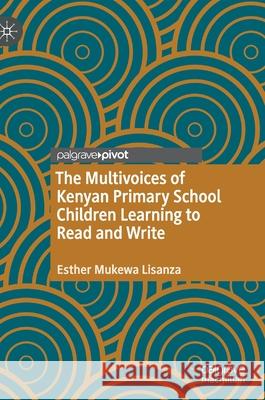The Multivoices of Kenyan Primary School Children Learning to Read and Write » książka
topmenu
The Multivoices of Kenyan Primary School Children Learning to Read and Write
ISBN-13: 9783030381097 / Angielski / Twarda / 2020 / 166 str.
Kategorie:
Kategorie BISAC:
Wydawca:
Palgrave MacMillan
Język:
Angielski
ISBN-13:
9783030381097
Rok wydania:
2020
Wydanie:
2020
Ilość stron:
166
Waga:
0.36 kg
Wymiary:
21.01 x 14.81 x 1.12
Oprawa:
Twarda
Wolumenów:
01
Dodatkowe informacje:
Wydanie ilustrowane











